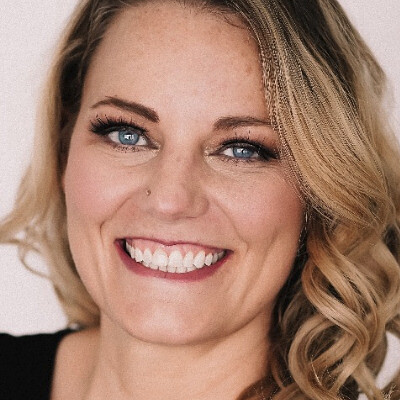Sustainable health behavior change in patients with chronic disease demands innovative, team-based solutions. Health coaches, with expertise in behavior change, are uniquely poised to strengthen interprofessional teams by empowering patients in sustainable lifestyle changes. Yet, many are unaware of the role health coaches can play and how they are trained. This presentation will demonstrate how integrating a health coach into collaborative care improves chronic disease management for many populations. We draw on reflective data from interprofessional simulations with nursing students and recent research to illustrate the health coach’s role as a catalyst for patient engagement and adherence. Co-presenter Dola Greene, a second-year Master’s student in health coaching, will share a learner’s perspective on these experiences and her training.
Our presentation aligns with the Summit theme of Interprofessional Collaboration and Advocacy to Advance the Health of Individuals, Families, and Communities. Through simulation-based education, health coaching and nursing students learned with and from each other, developing communication, teamwork, and advocacy skills. In practice, a health coach on the care team advocates for the patient's needs and goals and builds trust and rapport through coaching psychology skills. These strategies exemplify interprofessional advocacy that empowers individuals and families in managing chronic illness.
This session contributes knowledge and outcomes tied to better care, better value, and better education. Incorporating a health coach led to improved patient self-management and chronic disease outcomes, consistent with evidence that embedding coaches in teams can accelerate patient progress (Dennesonn et al., 2023). Patient experience and behavioral health outcomes also improved. For example, coached patients demonstrated increased physical activity and lower depression scores (Wolever, et al., 2022), supporting better care and population health. By reducing barriers to adherence, health coaches may help lower costly complications, increasing value, especially as most health coaching is offered through telehealth. Educating future professionals in the role that health coaches can play exemplifies better education to prepare teams for collaborative practice that directly impacts patient outcomes.
Finally, our talk addresses key Nexus Summit priorities. It features meaningful student involvement and the content emphasizes behavioral health and chronic care, showcasing an integrated approach to lifestyle change. We also illustrate the impact on Quadruple Aim outcomes including enhancing patient experience, improving population health, supporting team wellbeing, and increasing value. Attendees will gain practical strategies to advocate for and integrate health coaching roles into interprofessional teams, advancing better care and education for vulnerable populations.
In support of improving patient care, this activity is planned and implemented by The National Center for Interprofessional Practice and Education Office of Interprofessional Continuing Professional Development (National Center OICPD). The National Center OICPD is accredited by the Accreditation Council for Continuing Medical Education (ACCME), the Accreditation Council for Pharmacy Education (ACPE), and the American Nurses Credentialing Center (ANCC) to provide continuing education for the healthcare team.
As a Jointly Accredited Provider, the National Center is approved to offer social work continuing education by the Association of Social Work Boards (ASWB) Approved Continuing Education (ACE) program. Organizations, not individual courses, are approved under this program. State and provincial regulatory boards have the final authority to determine whether an individual course may be accepted for continuing education credit. The National Center maintains responsibility for this course. Social workers completing this course receive continuing education credits.
The National Center OICPD (JA#: 4008105) is approved by the Board of Certification, Inc. to provide continuing education to Athletic Trainers (ATs).
This activity was planned by and for the healthcare team, and learners will receive Interprofessional Continuing Education (IPCE) credit for learning and change.


Physicians: The National Center for Interprofessional Practice and Education designates this live activity for AMA PRA Category 1 Credits™. Physicians should only claim credit commensurate with their participation.
Physician Assistants: The American Academy of Physician Assistants (AAPA) accepts credit from organizations accredited by the ACCME.
Nurses: Participants will be awarded contact hours of credit for attendance at this workshop.
Nurse Practitioners: The American Academy of Nurse Practitioners Certification Program (AANPCP) accepts credit from organizations accredited by the ACCME and ANCC.
Pharmacists and Pharmacy Technicians: This activity is approved for contact hours.
Athletic Trainers: This program is eligible for Category A hours/CEUs. ATs should claim only those hours actually spent in the educational program.
Social Workers: As a Jointly Accredited Organization, the National Center is approved to offer social work continuing education by the Association of Social Work Boards (ASWB) Approved Continuing Education (ACE) program. Organizations, not individual courses, are approved under this program. State and provincial regulatory boards have the final authority to determine whether an individual course may be accepted for continuing education credit. The National Center maintains responsibility for this course. Social workers completing this course receive continuing education credits.
IPCE: This activity was planned by and for the healthcare team, and learners will receive Interprofessional Continuing Education (IPCE) credits for learning and change.
Learners can claim CE credit by completing the Daily Evaluation.


